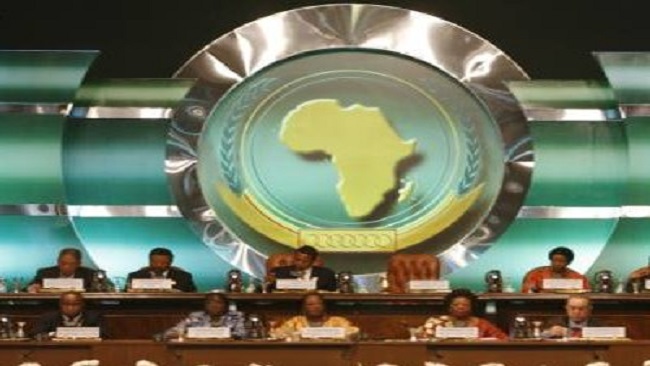African Union in precarious situation as regards financing of its peacekeeping operations
The African Union (AU) finds itself in a “highly unsustainable and precarious situation” as regards financing of its peacekeeping and peace support operations on the continent. According to a report released this month “the onerous nature” of its seven current peace support operations means the continental body has to rely on contributions from troop contributing countries and external partners to implement most peace support operations and, with the exception of AMISOM, has often had to transfer responsibility for its missions to the United Nations “typically within 12 to 26 months”.
The report states the total cost of current operations is estimated at US$1,2 billion for the 2016 year. “AMISOM, with an approved strength of 22 126 uniformed and 114 civilian personnel, accounts for an estimated US$900 a year. Among its partners the AU acknowledges the European Union and the United Nations as having played key roles. “There has been significant innovation and creative problem solving, which has been pivotal in meeting the continent’s peace and security challenges, All , nonetheless, acknowledge that, with a few exceptions, overall support remains largely ad hoc and unpredictable.”
To support funding for its peacekeeping and peace support operations the AU decided to increase member state contributions to the peace fund from six percent to 12% at the 2009 Tripoli Summit with the increase implemented over a three year period, starting in 2011. “To date the percentage contribution from the regular budget has only reached seven percent. This is mainly because of high levels of arrears and late payments of member states’ assessed contributions. While some member states have made additional voluntary contributions to the peace fund, these are irregular and unpredictable.
“As a result the fund is highly dependent on external partners. “This highly unsustainable and precarious situation affects the AU’s ability to independently manage its peace and security priorities. The multiplicity of donor financing channels has led to fragmentation and high transaction costs related to the numerous reporting requirements. “ The AU Assembly of Heads of State and Government last year decided to take financial responsibility for a quarter of peace activities by 2020. “This,” the report states, “is a major milestone. Of equal significance is the decision to reinvigorate the peace fund and appropriately endow it to finance preventive diplomacy, mediation activities, build readiness capabilities, maintain a crisis reserve facility and contribute to peace support operations when necessary”.
In the peacekeeping arena, the AU has mandated and deployed seven peace support operations, most of them in contexts where the UN has been unable to deploy peacekeepers in a timely manner: the African Mission in Burundi (AMIB), the African Mission in Darfur (AMIS), the African Mission in Somalia (AMISOM), the AU Electoral and Security Assistance Mission to the Comoros (MAES), the African-led International Support Mission to Mali (AFISMA), and the African-led International Support Mission to Central African Republic (MISCA).
The AU Commission also provides strategic, political, technical, and planning support to operations authorised by the Peace and Security Council and carried out by regional coalitions of member states, Regional Economic Communities (RECs), or Regional Mechanisms for Conflict Prevention, Management and Resolution (RMs). The support includes the Regional Co-operation Initiative against the Lord’s Resistance Army (RCI-LRA) and the operation against Boko Haram undertaken by the Lake Chad Basin Commission and Benin – the Multi-national Joint Task Force (MNJTF). Since 2015, the AU has also mandated deployment of 100 human rights observers and 100 military experts to Burundi.
Defenseweb





